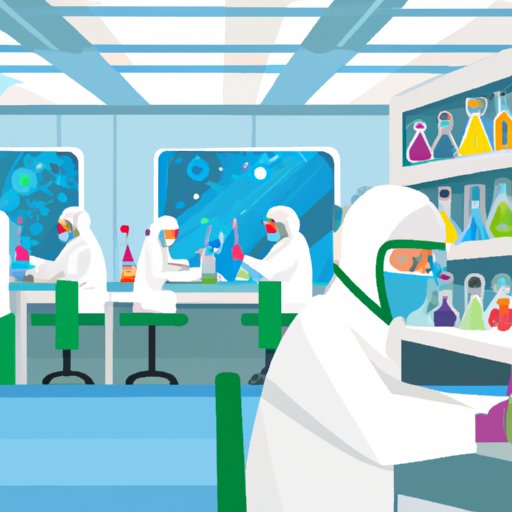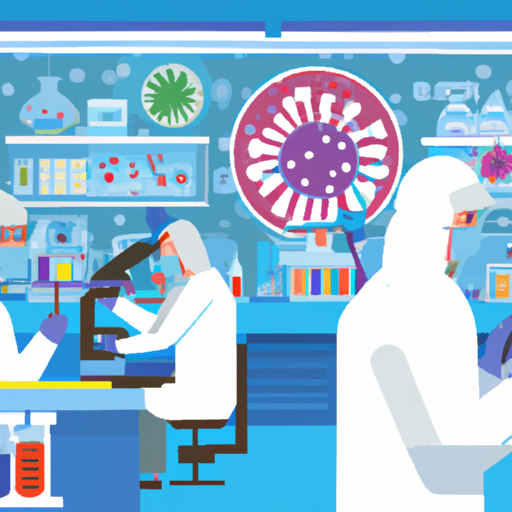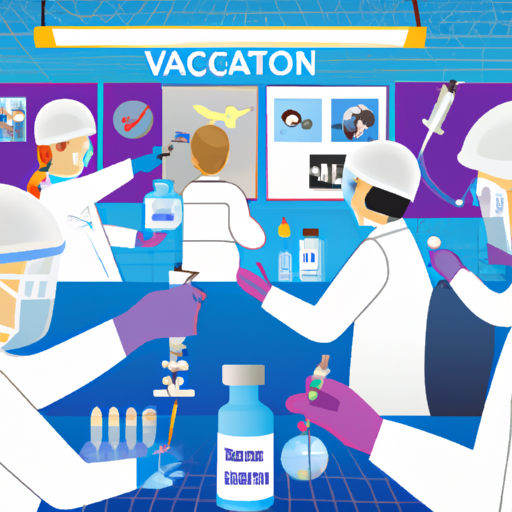The Development of Vaccines: Protecting Against Deadly Pathogens

The Development of Vaccines: Protecting Against Deadly Pathogens
Over the centuries, vaccines have played a crucial role in protecting humans against deadly pathogens. From smallpox to polio, these medical marvels have saved countless lives and played a significant role in reducing the burden of infectious diseases worldwide. However, the journey to developing effective vaccines has not been an easy one, requiring years of scientific research, meticulous testing, and dedicated efforts from the global medical community.
Vaccination is the process of administering a vaccine, typically in the form of a weakened or inactivated pathogen, to stimulate the immune system's response against specific diseases. By introducing the body to a harmless version of the pathogen, vaccines teach our immune system to recognize and launch a rapid and effective defense should we encounter the actual disease-causing pathogen in the future.

The development of vaccines is a complex and multi-step process. It typically starts with an understanding of the pathogen's biology, its mechanism of infection, and how it elicits an immune response in the human body. Scientists carefully study the pathogen's various components, such as proteins or surface molecules, that play a crucial role in stimulating immunity.
Once scientists have identified the key components, they begin to develop different types of vaccines. These can include live-attenuated vaccines, inactivated or killed vaccines, subunit vaccines, recombinant vaccines, or viral vector vaccines, among others. Each type of vaccine has its own advantages and limitations, depending on the unique characteristics of the pathogen being targeted.
Before a vaccine can be approved for widespread use, it undergoes extensive testing in preclinical and clinical trials. In preclinical stages, the vaccine is tested on animals to evaluate its effectiveness and safety. If successful, it progresses to the next phase, where it is tested on a small group of healthy individuals to determine the proper dosage and assess any potential adverse effects. Subsequently, a larger population is enrolled in randomized clinical trials to assess the vaccine's efficacy and safety in a more representative sample. These trials follow stringent protocols, often lasting several years, to ensure the vaccine's effectiveness and safety.
The remarkable success of vaccines can be seen in the eradication of certain diseases, such as smallpox, which was declared eradicated in 1980 thanks to a global vaccination campaign. Polio is another example where vaccines have played a pivotal role in reducing the incidence of the disease by over 99% worldwide.

Despite the significant achievements, the development of vaccines faces several challenges. First, the discovery and development of vaccines require substantial funding and resources. Additionally, rigorous testing, regulatory approvals, and the translation of scientific discoveries into effective vaccines can be time-consuming processes. Moreover, public trust in vaccines is crucial, as vaccine hesitancy can hinder their impact on public health.
The COVID-19 pandemic has reminded the world of the importance of vaccines in protecting against deadly pathogens. The development of multiple highly effective vaccines within a year of the novel coronavirus's emergence is a testament to the progress made in vaccine research. It serves as a reminder of the dedication and collaboration of scientists, pharmaceutical companies, and governments worldwide to combatting infectious diseases.
As the world continues to face new and emerging pathogens, investing in the development of vaccines remains paramount. The ongoing research and advancements in vaccine technology hold the promise of preventing future outbreaks and reducing the burden of infectious diseases globally. With continued efforts, scientists are expanding the frontiers of vaccine development, exploring new approaches, such as mRNA-based vaccines, to tackle a wider range of diseases.
In conclusion, the development of vaccines has revolutionized the field of medicine, protecting humanity against deadly pathogens. From the early days of smallpox eradication to the fight against COVID-19, vaccines have been pivotal in saving lives and preventing the spread of infectious diseases. By investing in research, maintaining trust, and prioritizing vaccination campaigns, we can build a healthier and more resilient world for future generations.






